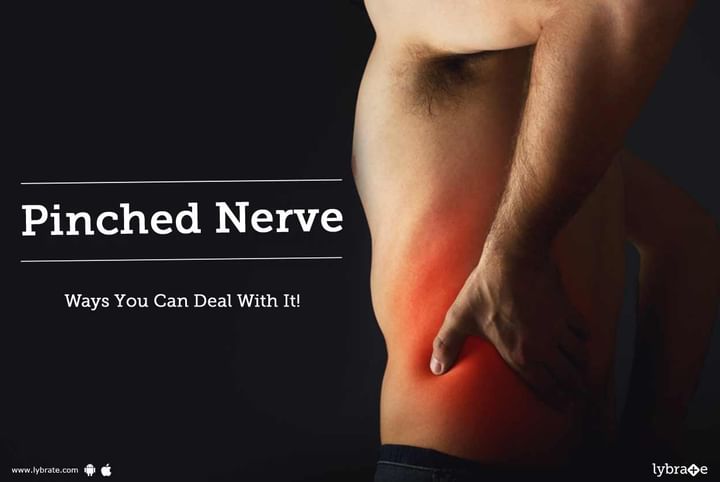Pinched Nerve - Ways You Can Deal With It!
A pinched nerve is a sensation that causes a lot of pain due to pressure on the nerve or some form of nerve damage that may have been caused due to an accident, sports injury, or even as a side effect of other chronic conditions like diabetes. In this condition, one experiences a sharp and shooting pain as soon as there is some movement of the area or pressure on the same.
A pinched nerve usually signifies damage rendered to a peripheral nerve which is usually to be found outside the spinal cord and the brain. Disc herniation and arthritis are also some conditions that may cause a pinched nerve in the affected area. This happens due to the pressure on the nerve which may lead to irritation in the protective layer of the same. This condition can make life quite painful. So here are a number of ways in which you can manage the pinched nerve.
- Location and Cause: In order to treat the condition in a satisfactory manner without causing further pain, the doctor will diagnose the location and the cause of the pain. This will have a large bearing on the treatment method to be followed. If there is an injury at play, it is imperative to give ample rest to the area while the treatment is conducted.
- Physiotherapy: One of the most preferred forms of long-term treatment for a pinched nerve includes physiotherapy, which will help in relaxing and exercising the muscles and joints of the area so that stiffness and pain do not set in. The right kind of physiotherapy will also include exercises that will help in building the core strength of the muscles and joints in the area so that one does not suffer from weakness and pain in the long run.
- Splinting and Bracing: For conditions that have affected the feet or the wrists, like Carpels Tunnel, for example, it is imperative to wear a splint or a brace, especially at night. This will ensure that the patient does not move the area unnecessarily, as this could lead to even more pain for the patient. One may also have to learn how to switch the natural body positions and change them accordingly so that the affected areas can be given enough of rest. These will usually be recommended by the doctor and the physiotherapist.
- Medication: Anti-inflammatory drugs may be taken in case of extreme pain. These should be taken after consultation with a doctor so that you only have the prescribed dose of a medicine that would suit you. Corticosteroids and painkillers are usually prescribed in such cases. Some of these medicines are also available in gel form for topical application, while others are for oral ingestion.
If above conservative treatment fails then we have to go for interventional pain management. Interventions can range from simple trigger point injection, inter lesional injections to more advanced rhizotomies, radio frequency ablation, neurolysis, etc.



+1.svg)
